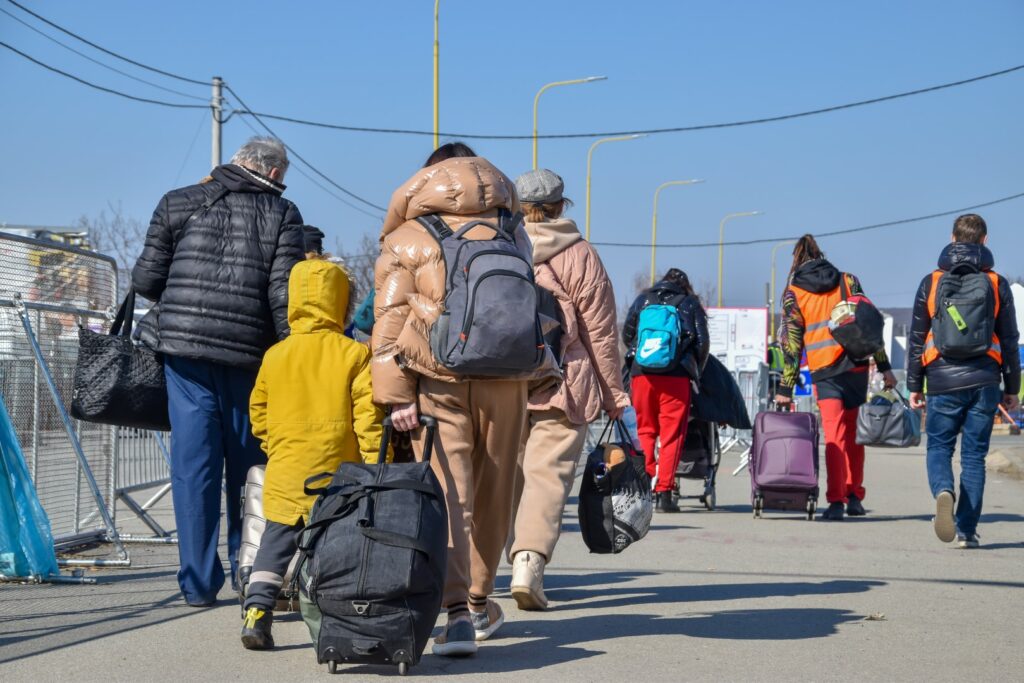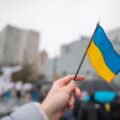Why the accountability of European religious leaders during the Ukraine crisis matters
Why the accountability of European religious leaders during the Ukraine crisis matters
The Ukraine crisis shows why religious leaders need to act with accountability: failure to do so may turn the conflict into a religious one.
In addition to affecting political[1] and economic[2] life in Europe, the Russian invasion of Ukraine has impacted religious life in Europe.[3] Recent reactions from two large religious associations in Europe have particularly highlighted one key concern: the accountability of religious leaders.
Between silence and exile
The Conference of European Churches (CEC) emphasised the need for religious leaders to play a role in realising peace.[4] In a letter issued on 4 March 2022 to Patriarch Kirill, Russian Orthodox Patriarch of Moscow and All Russia, the CEC’s President Christian Krieger said, “I am disheartened by your daunting silence on the unprovoked war that your country declared against another country, which is home to millions of Christians, including Orthodox Christians that belong to your flock.”[5] In contrast to the Orthodox Church of Ukraine and the Russian Orthodox Church in Amsterdam, Patriarch Kirill is widely understood to endorse the war in Ukraine.[6]
During their annual meeting in June 2022, the Conference of European Rabbis (CER) flagged the threat to Jews in Russia and Ukraine.[7] Pinchas Goldschmidt, not only the head of CER but also the Chief Rabbi of Moscow, declared that “a significant part of the Jews have already left the country”[8] and that “many more are considering taking that step.”[9] Goldschmidt himself lives in exile in Jerusalem, having left Russia after the Kremlin pressured him to publicly support the war.[10] His resistance to government pressure also reportedly led to attempts to replace him.[11]
A tale of two leaders
The case of Patriarch Kirill and Rabbi Goldschmidt highlights how religious leaders can react to the Russian invasion of Ukraine: either oppose it or support it. These positions not only have significant political consequences, but also an undeniable impact on the religious communities themselves.
Patriarch Kirill’s strong ties to Moscow’s political interests show not only how religious communities can be pulled into nationalist narratives but also how they stop being what they are and instead become part of an ideological project.[12] Rabbi Goldschmidt’s resistance to political pressures shows not only how vulnerable religious minorities are but also how they need resistance to maintain their religious ideas.[13] Rabbi Goldschmidt’s resistance in many ways is part of his larger effort to protect Jewish life in Europe that includes his fight against rising antisemitism[14] and the recurrent wave of legislation against Jewish practices such as shechita and circumcision.[15]
Another religious war?
One of the fears palpable in Christian Krieger’s call for Patriarch Kirill to remain beyond national interests is that the Russian invasion of Ukraine may become a religious war. Lucian N. Leustean of Aston University makes exactly this case. Calling the invasion “the first religious war in the 21st century,”[16] Leustean argues that Russia’s advancement towards Kyiv is not only a political annexation but also a religious one. It is a bid to incorporate Ukraine into Russia’s religious whole: part of Russia’s religious community, subject to Russia’s religious leadership, and marked as one of Russia’s sacred sites.[17]
Leustean further warns that the longer the conflict takes, the more explicitly religious it will become. If the wider Orthodox clergy eventually refrains from recognising the Russian Orthodox Church as ‘orthodox’, Christianity as a world religion may well find itself divided even further. The Moscow Patriarchate may well “move further outside communion with fellow churches in setting up its own ecclesiastical jurisdictions around the world.”[18]
The impact of the Ukraine crisis on religious life in Europe, therefore, highlights why it is crucial for religious leaders to act with accountability. Any close involvement with the politics driving the conflict will not only displace religious minorities and alter religious communities and their ideas. It will also make religion an increasingly prominent part of the conflict. As a white paper by EARS recently pointed out, this development has come as a surprise to many in Europe, who not only never expected Russia to invade Ukraine but also never expected religion to play such an essential role.[19]
Sources
[1] How Ukraine Is Upending European Politics – The Atlantic
[2] War in Ukraine is Serious Setback to Europe’s Economic Recovery – IMF Blog
[3] Russia’s Invasion of Ukraine: The First Religious War in the 21st Century | Religion and Global Society
[4] Conference of European Churches to Patriarch of Moscow: I am disheartened by your daunting silence | Orthodox Times (en)
[5] CEC Governing Board endorses call for peace with justice in Ukraine
[6] Whitepaper: War & Peace – European Academy on Religion and Society
[7] European rabbis in Germany for landmark conference | Germany | News and in-depth reporting from Berlin and beyond | DW | 02.06.2022
[8] European rabbis in Germany for landmark conference | Germany | News and in-depth reporting from Berlin and beyond | DW | 02.06.2022
[9] European rabbis in Germany for landmark conference | Germany | News and in-depth reporting from Berlin and beyond | DW | 02.06.2022
[10] Moscow’s chief rabbi ‘in exile’ after resisting Kremlin pressure over war | Russia | The Guardian
[11] Moscow’s chief rabbi ‘in exile’ after resisting Kremlin pressure over war | Russia | The Guardian
[12] How religion turns into ideology
[13] How religion turns into ideology
[14] Anti-Semitism: Dramatic rise in 2021, Israeli report says – BBC News
[15] Moscow’s Chief Rabbi sets out post-pandemic challenges facing the Jewish world
[16] Russia’s Invasion of Ukraine: The First Religious War in the 21st Century | Religion and Global Society
[17] Russia’s Invasion of Ukraine: The First Religious War in the 21st Century | Religion and Global Society
[18] Russia’s Invasion of Ukraine: The First Religious War in the 21st Century | Religion and Global Society
[19] Whitepaper: War & Peace – European Academy on Religion and Society






